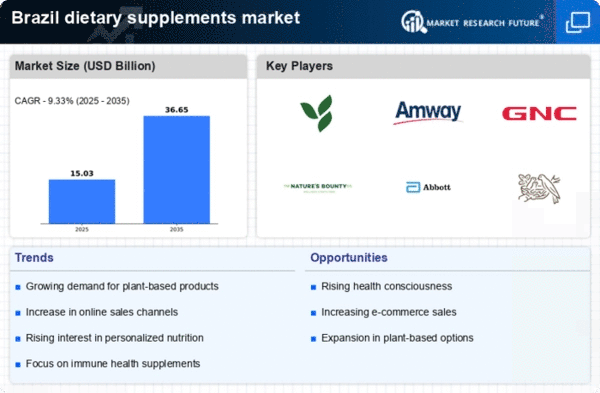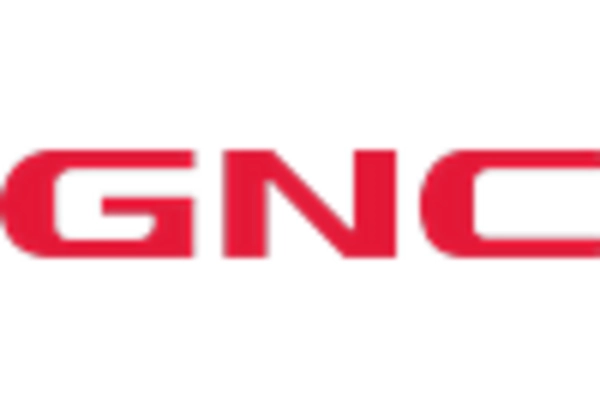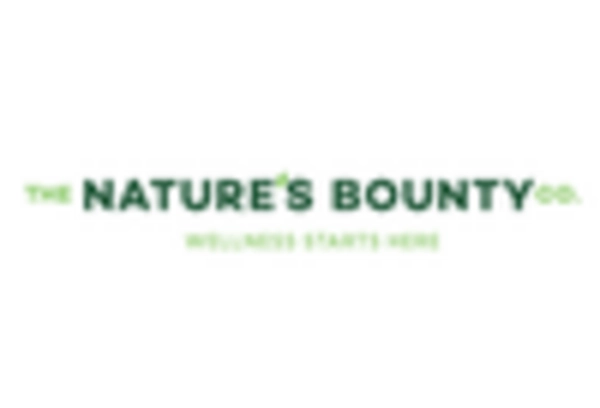Aging Population
Brazil's demographic shift towards an aging population is likely to have a profound impact on the dietary supplements market. As the population aged 60 and above continues to grow, there is an increasing demand for products that support health and vitality in later years. This demographic is often more health-conscious and willing to invest in dietary supplements that promise to enhance quality of life. Data suggests that this age group is projected to account for nearly 25% of the population by 2030, creating a substantial market opportunity. The dietary supplements market is thus poised to cater to the specific needs of older consumers, focusing on formulations that address age-related health concerns.
E-commerce Expansion
The rapid growth of e-commerce in Brazil is significantly influencing the dietary supplements market. With more consumers turning to online shopping for convenience and variety, the accessibility of dietary supplements has improved markedly. Recent statistics indicate that online sales of dietary supplements have increased by over 30% in the past year alone. This shift not only allows consumers to compare products easily but also provides access to a wider range of brands and formulations. The dietary supplements market is adapting to this trend by enhancing online presence and marketing strategies, thereby reaching a broader audience and catering to the evolving shopping preferences of Brazilian consumers.
Influence of Social Media
The role of social media in shaping consumer behavior cannot be overlooked in the context of the dietary supplements market. Platforms such as Instagram and Facebook are increasingly utilized by brands to promote their products and engage with consumers. Influencers and health advocates often share personal experiences and recommendations, which can significantly sway purchasing decisions. Recent surveys indicate that nearly 40% of Brazilian consumers have made supplement purchases based on social media recommendations. This trend suggests that the dietary supplements market must leverage digital marketing strategies to effectively reach and resonate with target audiences, particularly younger consumers who are more active on these platforms.
Growing Health Consciousness
The increasing awareness of health and wellness among Brazilian consumers appears to be a primary driver for the dietary supplements market. As individuals become more informed about nutrition and its impact on overall health, the demand for dietary supplements is likely to rise. According to recent data, approximately 60% of Brazilians actively seek out products that promote health benefits, indicating a shift towards preventive healthcare. This trend is further supported by the rise in lifestyle-related health issues, prompting consumers to explore dietary supplements as a means to enhance their well-being. The dietary supplements market is thus experiencing a surge in interest, with consumers prioritizing products that align with their health goals.
Regulatory Support and Innovation
The Brazilian government's supportive regulatory framework for dietary supplements is fostering innovation within the market. Recent initiatives aimed at streamlining the approval process for new products are encouraging manufacturers to invest in research and development. This regulatory environment not only enhances product safety but also promotes the introduction of novel formulations that cater to evolving consumer preferences. The dietary supplements market is thus witnessing a wave of innovation, with companies exploring unique ingredients and delivery methods to differentiate their offerings. As a result, consumers are likely to benefit from a broader selection of high-quality dietary supplements that align with their health objectives.

















